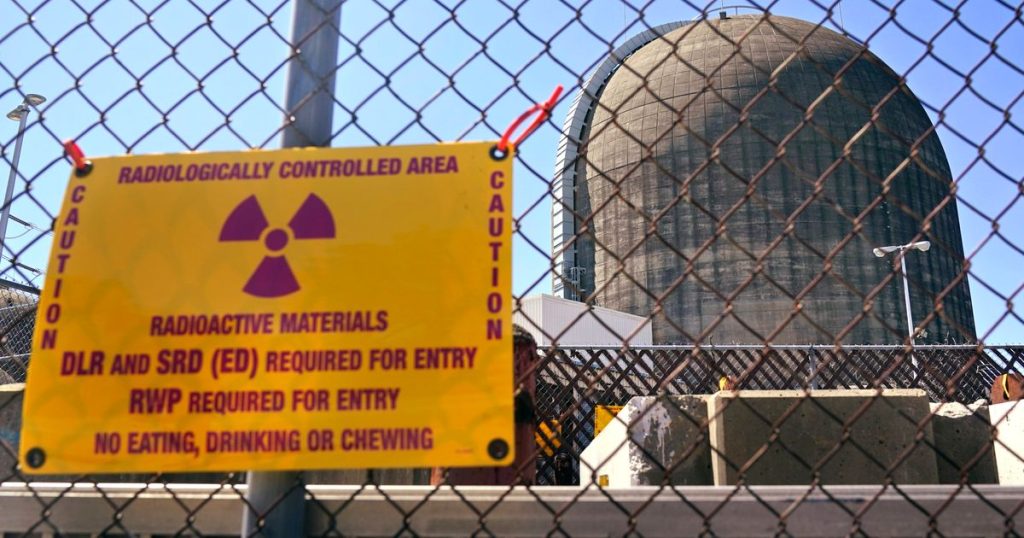Holtec International, the company that owns the shuttered nuclear plant Indian Point, is taking legal action against the state of New York over a law passed last year that prevented the plant from releasing treated wastewater into the Hudson River. Tritium, a relatively weak radioactive isotope, is commonly released into waterways by nuclear power plants during routine operations. However, when plants shut down and decommissioning companies take over, new permits are required to resume these releases. Holtec claims that the state law violates federal regulations giving the U.S. Nuclear Regulatory Commission sole authority over radiological discharges from nuclear power plants, a position that has delayed the decommissioning of Indian Point by years.
The Biden administration has shown support for nuclear energy, directing billions towards maintaining the U.S. nuclear fleet. Despite the closure of many reactors in recent years, efforts are being made to support existing plants and potentially develop new ones. The federal government is taking responsibility for managing the radioactive waste from nuclear plants, but challenges remain due to the lack of a permanent disposal site. Multiple states, including New York and Massachusetts, have passed laws to address issues related to nuclear waste, with varying approaches to regulation and disposal methods.
The release of tritiated water into waterways has sparked concern among some residents and environmental groups, highlighting potential risks associated with radiation exposure. While studies have shown that tritium exposure is not linked to cancer in humans, larger concentrations can pose risks to the environment and wildlife. Some regions have banned nuclear waste disposal until permanent solutions are found, leading to legal challenges from companies like Holtec that are involved in the decommissioning process. Federal regulators have indicated that alternative disposal methods for tritiated water could be more costly and risky than diluting and releasing it into the environment.
Despite concerns about radiation exposure, evidence suggests that some amounts of radiation may be less harmful than previously believed. Studies have not shown an increase in cancer rates among cattle in the Fukushima exclusion zone, challenging existing safety models. The negative health impacts of fossil fuel emissions, such as air pollution, are becoming increasingly clear, with links to various diseases and environmental degradation. As nuclear power plants close prematurely, there is a shift towards fossil fuels for energy generation, increasing emissions and exacerbating climate change. The balance between the risks of radiation exposure from nuclear power and the harms of fossil fuel emissions remains a topic of debate and regulation.


